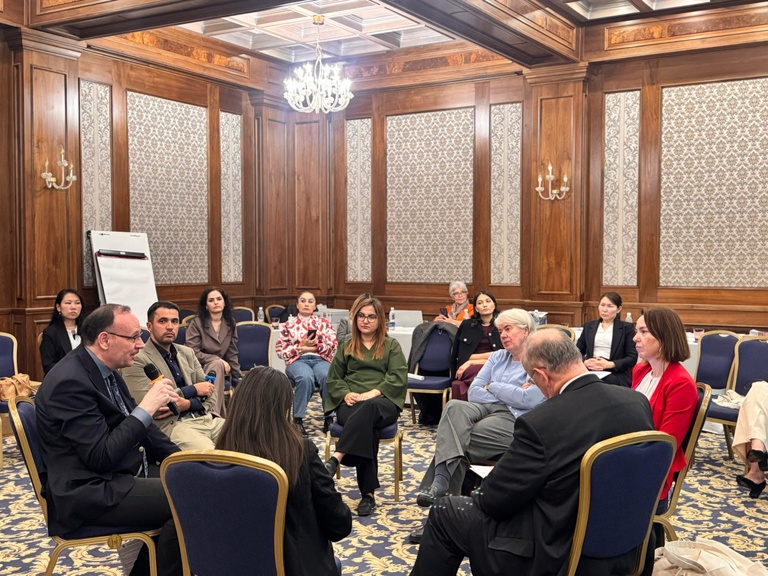
As part of its commitment to advancing inclusive climate governance, the CLIMPACT project at the Potsdam Institute for Climate Impact Research (PIK) co-organized the policy dialogue “Gender and Youth in Water & Energy: Building Inclusive Futures for Central Asia”, held on November 3–4, 2025, in Bishkek.
The event, conducted under the Green Central Asia initiative, gathered policymakers, researchers, and civil society representatives from across the region to explore how gender and youth inclusion can enhance cooperation and resilience in the water–energy nexus.
Implemented by PIK together with GIZ, GFZ Helmholtz Centre for Geosciences, the German Council on Foreign Relations (DGAP), the OSCE Academy in Bishkek, and the Central Asia and Afghanistan “Women and Water” Association (CAAWWA), the dialogue connected science, policy, and practice through participatory and evidence-based approaches.

Participants discussed strategies to strengthen regional cooperation among networks such as Women in Water Diplomacy, Drops of the Future, and Central Asian Women in Renewable Energy. Key outcomes included the identification of shared priorities for long-term collaboration: improving coordination and visibility across networks, formalizing partnerships with government institutions, and creating joint training and mentoring opportunities for women and young professionals.
Discussions also emphasized the need to integrate climate education and gender-sensitive approaches into higher education and basin-level capacity building. Participants proposed new platforms for joint research, regional databases, and small grants to support inclusive innovation in water and energy governance.
By facilitating this exchange, CLIMPACT continues to bridge science and policy, fostering regional cooperation for equitable and sustainable environmental governance across Central Asia.





